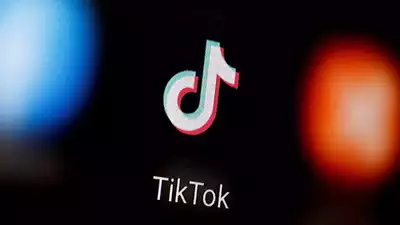The debate over TikTok’s presence in the United States has escalated to new heights, as U.S. lawmakers and regulatory bodies intensify efforts to address national security concerns linked to the Chinese-owned app. With 170 million American users, TikTok’s widespread influence has raised alarms regarding potential data privacy risks and its ties to the Chinese Communist Party (CCP). Following a recent U.S. federal appeals court decision requiring ByteDance, TikTok’s parent company, to divest its operations in the U.S. or face a nationwide ban, pressure is mounting on tech giants Apple and Google to remove the app from their platforms by January 19, 2025. This comprehensive article examines the legislative developments, stakeholder responses, and the implications for TikTok and its users.
US lawmakers demand TikTok removal to protect national security
On Friday, Representatives John Moolenaar, a Republican and chair of the House committee on China, and Raja Krishnamoorthi, the top Democrat on the same committee, issued a strong warning to ByteDance and TikTok CEO Shou Zi Chew. In their statement, the lawmakers emphasized the urgency of executing a “qualified divestiture” to mitigate risks to U.S. national security and safeguard the app’s millions of American users.
“Congress has acted decisively to defend the national security of the United States and protect TikTok’s American users from the Chinese Communist Party,” the lawmakers asserted in a joint letter.
ByteDance and TikTok have been under intense scrutiny for their alleged vulnerability to Chinese government influence, which critics argue could enable the CCP to access sensitive user data or manipulate content.
Apple and Google told to ban TikTok by January 19
Alphabet, the parent company of Google, and Apple, two of the world’s largest technology firms, have been drawn into the controversy. Lawmakers have instructed the companies to prepare for TikTok’s removal from their app stores by the January 19 deadline unless ByteDance complies with the divestiture requirement.
While neither Apple nor Alphabet has commented on the matter, compliance with such an order would mark a significant moment in the ongoing struggle between the U.S. government and foreign-owned digital platforms.
TikTok’s legal challenge
In response to the court ruling, ByteDance and TikTok filed an emergency appeal with the U.S. Supreme Court, seeking to temporarily block the divestiture law while awaiting further judicial review. TikTok has argued that the legislation poses an existential threat to its operations in the U.S., warning that removing the app from mobile platforms would render it unusable for millions of Americans.
“The law, absent a court order, means TikTok will disappear from mobile app stores on Jan. 19 and be unavailable to the half of the country that does not already use the app,” TikTok stated.
The app also emphasized that a loss of support services would “cripple the platform in the United States,” effectively dismantling its functionality over time.
The national security argument
The core issue driving these developments is TikTok’s ownership by ByteDance, a China-based company subject to Chinese data security laws. Critics argue these laws compel companies to cooperate with the Chinese government, raising fears that user data from TikTok could be accessed or exploited by Beijing.
Republican Senator Josh Hawley underscored these concerns, stating, “The main issue is it’s subject to Chinese oversight, Beijing oversight — that’s the problem.”
Lawmakers and national security experts have repeatedly warned that TikTok’s vast repository of user data, combined with its sophisticated algorithmic capabilities, could pose a significant threat to U.S. interests.
Implications for TikTok users
If the law takes effect on January 19 without intervention, TikTok will be removed from Apple’s App Store and Google Play. While the Department of Justice has clarified that this would not directly prohibit current users from continuing to use the app, the lack of ongoing support and updates would eventually render TikTok obsolete in the U.S.
For the 170 million Americans who use TikTok, the app’s removal would represent a dramatic shift in their digital landscape. Creators and businesses that rely on the platform for income and engagement may face significant disruptions.
President-elect Donald Trump’s vow
Adding another layer of complexity, President-elect Donald Trump has promised to intervene to prevent a TikTok ban, signaling potential political resistance to the divestiture law. While details of Trump’s plan remain unclear, his involvement could influence the outcome of the ongoing legal and legislative processes.
Also read | Airtel recharge plans | Jio recharge plans | BSNL recharge plans
